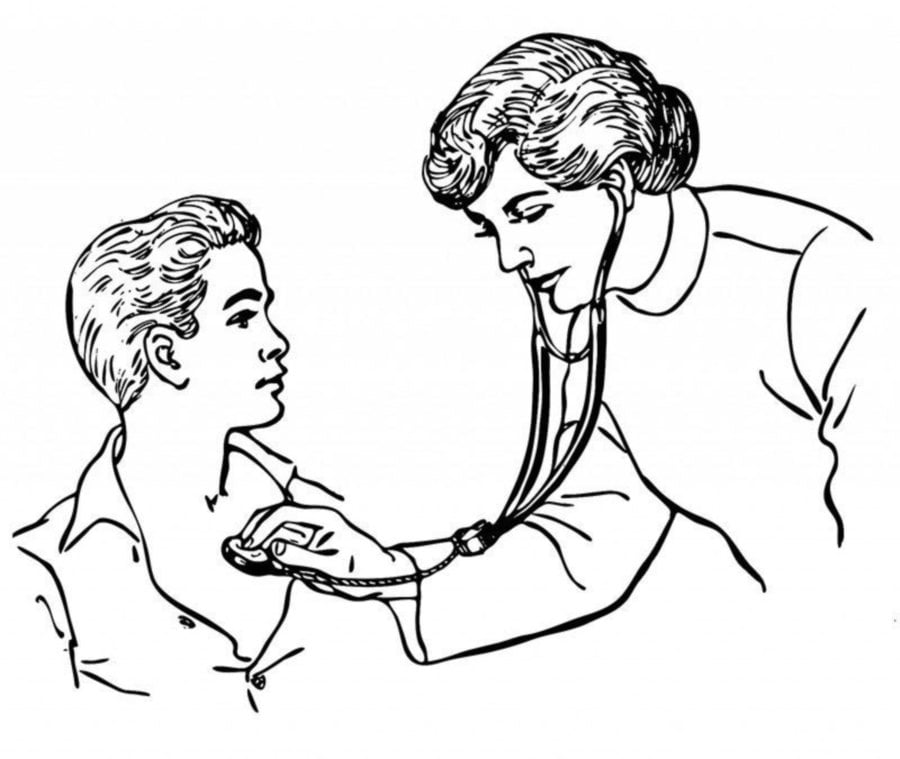FOR the amount of time caregivers spend at the hospital to keep their ailing loved ones company, it may seem ironic that they frequently neglect to take care of themselves.
Caregivers tend to put everyone else first at the expense of their own health. They are so focused on their loved ones that they seldom have time to exercise (they are often too tired or not in the mood), neglect themselves and do not eat nutritiously (they grab the first filling thing from the convenience store).
I am guilty of two of the three above. I worked out at the gym and lifted weights because I needed to be physically strong to carry my disabled son — a heavy, strapping young adult — as well as my parents who were wheelchair-bound.
During those years, I didn’t seriously think about medical check-ups for myself because I believed I was young, strong and quite invincible.
Some people label this behaviour as the “superhero syndrome” — the protective caregiver thinking that nothing bad can happen to her loved one if she is there.
This category of people over-commit more than they can realistically handle. They also find it difficult to say “no” to requests and end up stretching themselves beyond their limit. And then they get sick and burnt out.
They become the recipient of attention only when something actually happens to them, usually something quite drastic that requires hospitalisation. Only then will they call for help and make back-up plans.
So, to monitor one’s health, what kind of medical check-ups should one go for? My doctor friends say everyone’s needs and predispositions are different.
It depends on your age, family history and lifestyle, among others.
A full medical check-up usually includes a physical examination, blood tests, x-ray, stress test, and for women, gynaecological exam and pap smears.
If you have a family history of diabetes, the test includes oral glucose tolerance, fasting blood and random blood tests as well as the HbA1c. For the oral glucose tolerance test, you fast overnight (at least eight hours) and then the fasting blood sugar is measured. Then you drink a sugary liquid and the blood sugar levels are tested periodically over the next two hours.
As for the HbA1c test, you don’t need to fast as it measures the average blood glucose levels over several months. You can’t cheat on this one. If you’ve been naughty with your diet, it will show up in this test.
If heart disease or cancer runs in the family, then you should get yourself checked regardless of your age. Cancer tests, particularly for breast and cervical cancers, are common these days.
Women should go for a pap smear every one to three years until the age of 65. Women who are older than 65 and those who’ve undergone a total hysterectomy for reasons other than cancer don’t need it.
Mammograms are recommended for women above 40 and performed annually or every other year, according to their doctor’s recommendation.
Other tests that should be done as we age beyond 50 are the “top and tail” scope to check for gastrointestinal and colon problems. After the first test to establish the baseline, follow-up tests should be done every five to 10 years.
According to the American Cancer Society, colorectal cancer is the third leading cause of cancer-related deaths in women in the United States and the second leading cause in men. One of the reasons the death rate from colorectal cancer has been reducing in both men and women is that colorectal polyps are now being found more often and removed during screening before they can develop into cancers.
Other tests that one should screen for include heart disease, hypertension, hepatitis, HIV and osteoporosis, the latter being especially significant if you’re over 50 and have been a long-term steroid user — especially for asthma, arthritis and other inflammatory conditions.
Heart disease is the number one killer of women throughout the world, six times more likely to cause death than breast cancer. Based on these statistics, women over 50 should have their heart health checked.
The American Heart Association reports “heart disease is a killer that strikes more women than men, and is more deadly than all forms of cancer combined”.
If you’re unsure of what tests to go for during your next medical check-up, discuss it with your doctor who can recommend the series of tests required. A full blood profile is usually done too, to check cholesterol levels, among others. Hospitals offer packages for different needs and age groups. Such tests help the doctor spot illnesses even before the symptoms start showing.
Putri Juneita Johari volunteers for the Special Children Society of Ampang. You can reach her at [email protected]
Note: The content of this column is provided for general information only, and not to be substituted for proper medical advice and diagnosis. Always consult your doctor if you’re in any way concerned about your health.
**The article above was brought to you by AmMetLife Insurance Bhd





